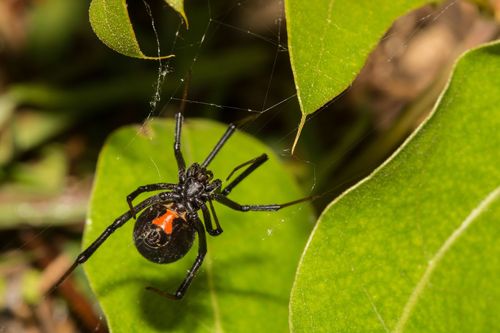
Understanding Venomous Spider and Scorpion Bites
When it comes to venomous creatures, spiders and scorpions often come to mind. Both can deliver bites that can range from mild to life-threatening. In this article, we will delve into the signs and symptoms of venomous spider and scorpion bites, helping you understand what to look out for and how to respond.
Spider Bites
Spider bites can be tricky to diagnose because many species of spiders are not venomous. However, if you have been bitten by a venomous spider, here are some signs to watch for:

| Sign | Description |
|---|---|
| Redness and Swelling | Immediate and localized reaction at the bite site. |
| Pain | Sharp, throbbing pain that may worsen over time. |
| Itching | Itching around the bite area. |
| Wheals | Wavy lines or raised areas around the bite. |
| Systemic Symptoms | Headache, fever, nausea, and vomiting. |
Some of the most dangerous spiders include the black widow and the brown recluse. The black widow’s bite can cause severe muscle pain, nausea, and vomiting, while the brown recluse’s bite can lead to necrosis of the skin and surrounding tissue.
Scorpion Bites
Scorpion bites are more common in certain regions, such as the southwestern United States, Mexico, and the Middle East. Here are the signs and symptoms to look out for:
| Sign | Description |
|---|---|
| Pain | Immediate, sharp pain at the bite site. |
| Swelling | Localized swelling around the bite. |
| Redness | Redness and warmth around the bite area. |
| Systemic Symptoms | Headache, fever, nausea, and vomiting. |
| Severe Symptoms | Severe pain, difficulty breathing, and muscle spasms. |
The severity of a scorpion bite depends on the type of scorpion and the amount of venom injected. Some scorpions, like the bark scorpion, can cause severe symptoms, while others may only cause mild discomfort.
What to Do if Bitten
If you suspect you have been bitten by a venomous spider or scorpion, here are some steps to take:

- Keep calm and try to remain still to prevent the venom from spreading.
- Remove any jewelry or tight clothing around the bite area, as swelling may occur.
- Wash the bite area with soap and water to prevent infection.
- Apply a cold compress to reduce swelling and pain.
- Seek medical attention immediately, especially if you experience severe symptoms or if you are allergic to venom.
Prevention
Preventing venomous spider and scorpion bites involves taking certain precautions:
- Avoid walking barefoot in areas where venomous spiders or scorpions are known to live.
- Keep your home and yard clean and free of clutter, as this can attract these creatures.
- Use insect repellent when outdoors, especially in areas where scorpions are common.
- Be cautious when handling items that may have been in the outdoors, such as boxes or logs.
Understanding the signs and symptoms of venomous spider and scorpion bites can help you respond appropriately and seek medical attention when needed. Remember, prompt treatment is crucial in preventing severe complications.



